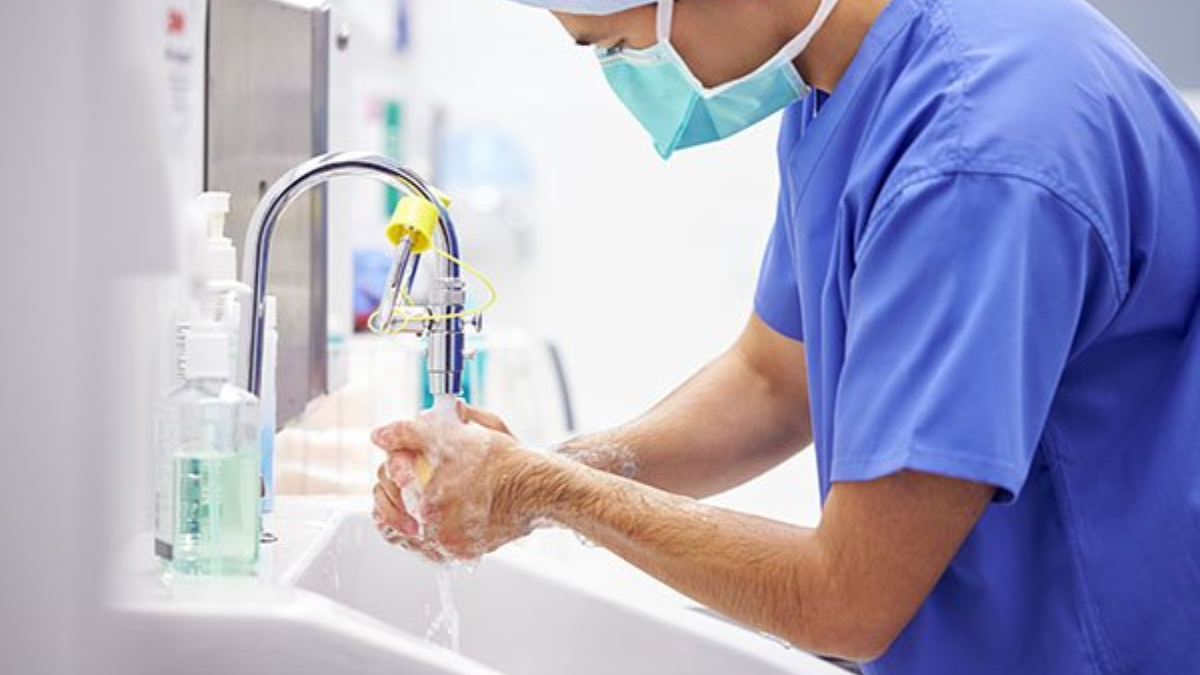Infection control and hygiene are vital components of hospital care. Hospitals are environments where patients with different health conditions come together, making them susceptible to infections. Proper infection control practices prevent the spread of bacteria, viruses, and other pathogens, ensuring the safety of patients, staff, and visitors. Modern hospitals follow strict hygiene protocols to maintain a clean and safe environment.
Importance of Infection Control in Hospitals
- Prevents Hospital-Acquired Infections (HAIs): Protects patients from infections contracted during hospital stays.
- Ensures Staff Safety: Reduces the risk of infections among doctors, nurses, and support staff.
- Maintains Public Trust: Clean hospitals gain patient confidence and enhance reputation.
- Supports Treatment Effectiveness: Minimizes complications caused by infections.
- Compliance with Legal Standards: Follows national and international infection control regulations.
Key Infection Control Practices
1. Hand Hygiene
- Frequent hand washing and use of sanitizers by staff and visitors.
- Proper technique to cover all parts of hands and nails.
2. Sterilization of Equipment
- Surgical tools, medical devices, and instruments are sterilized before use.
- Use of autoclaves, chemical disinfectants, and UV sterilization.
3. Use of Personal Protective Equipment (PPE)
- Gloves, masks, gowns, and face shields to protect staff and patients.
- Essential during surgeries, infectious disease treatments, and lab work.
4. Isolation of Infectious Patients
- Special wards or rooms for patients with contagious diseases.
- Prevents cross-infection to other patients.
5. Waste Management
- Segregation and safe disposal of biomedical and chemical waste.
- Reduces risk of contamination and environmental pollution.
6. Cleaning and Disinfection
- Regular cleaning of hospital floors, surfaces, and patient rooms.
- Use of approved disinfectants and hospital-grade cleaning equipment.
Role of Staff in Infection Control
- Doctors: Follow protocols during procedures and prescribe antibiotics judiciously.
- Nurses: Monitor patients for signs of infection and maintain hygiene.
- Support Staff: Clean wards, manage waste, and disinfect equipment.
- Administrators: Ensure training, policies, and monitoring systems are in place.
Challenges in Hospital Infection Control
- High patient volume and overcrowding.
- Limited resources in some hospitals for sterilization and PPE.
- Non-compliance by visitors or staff with hygiene protocols.
- Emergence of antibiotic-resistant bacteria.
- Rapidly spreading infectious diseases like COVID-19.
Technology in Infection Control
- Automated Sterilizers: Ensure equipment is completely disinfected.
- UV-C Disinfection Robots: Clean rooms and surfaces efficiently.
- Digital Monitoring Systems: Track infection rates and hygiene compliance.
- Wearable Devices for Staff: Remind hand hygiene and PPE usage.
- Telemedicine: Reduces unnecessary hospital visits, lowering infection risks.
Future of Hospital Hygiene Practices
- Smart Wards: Automated air filtration and UV sterilization.
- AI Tracking: Real-time detection of infection outbreaks.
- Sustainable Infection Control: Eco-friendly disinfectants and reduced chemical use.
- Global Protocols: Hospitals adopting international infection prevention standards.
- Continuous Staff Training: Regular updates on new pathogens and best practices.
FAQs on Hospital Infection Control and Hygiene Practices
1. Why is infection control important in hospitals?
It prevents hospital-acquired infections, protects staff, and ensures patient safety.
2. What are common hospital hygiene practices?
Hand hygiene, sterilization, PPE usage, cleaning, and waste management.
3. How are infectious patients managed?
They are placed in isolation wards to prevent cross-infection.
4. What is the role of PPE in infection control?
PPE protects staff and patients from exposure to harmful pathogens.
5. How does hospital waste affect infection control?
Improper disposal increases the risk of contamination and disease spread.
6. Can technology help in infection control?
Yes, UV sterilization, automated sterilizers, AI tracking, and digital monitoring improve infection management.
7. What challenges do hospitals face in infection control?
Overcrowding, limited resources, non-compliance, and antibiotic-resistant bacteria.
8. How often should hospital equipment be sterilized?
Before every use, especially surgical instruments and medical devices.
9. How do hospitals ensure staff compliance with hygiene protocols?
Through regular training, monitoring systems, and reminders via digital tools.
10. What is the future of hospital hygiene practices?
Smart wards, AI monitoring, sustainable disinfectants, and global standards adoption.

